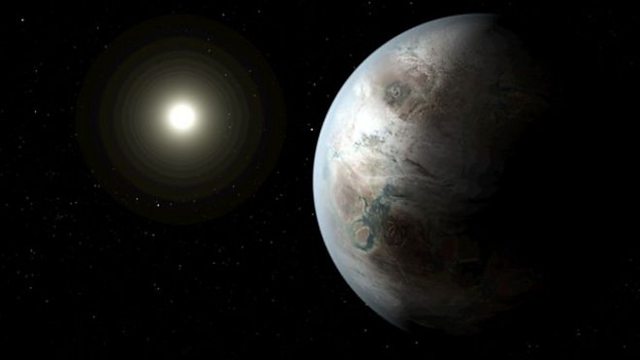
Earth 2.0
A haul of planets from Nasa's Kepler telescope includes a world sharing many characteristics with Earth.
A haul of planets from Nasa's Kepler telescope includes a world sharing many characteristics with Earth. Kepler-452b orbits at a very similar distance from its star, though its radius is 60% larger. Mission scientists said they believed it was the most Earth-like planet yet.
The Four-Legged Hugging Snake
The discovery of one of the most primitive and well preserved snake fossils ever found has given key insight into the early evolution of these reptiles. And the surprise is that it has four legs. The specimen has helped resolve a long-running debate over their early evolution, its characteristics firmly suggesting a burrowing ancestry as opposed to an aquatic, as well as suggesting that their limbs were used for other purposes than locomotion before they were lost.
Treemail
What started out as a municipal project in Australia where citizens could report trees in decline, turned into people writing love letters to their favourite trees. Arron Wood, a city of Melbourne councillor, tells Gareth Mitchell that he is amazed at the outpouring of real arboreal affection.
Arctic Ice
A new paper just published in Nature Geoscience shows that in 2013, which was a slightly cooler summer than average, arctic ice had grown, by 41% on the previous year. The study, uses data from ESA's Cryosat 2, which incorporates not just the surface area of ice, but the all-important number - the volume Adam examines the results with Rachel Tilling from University College London.
How Aviation Improves Medical Safety
The human brain is fallible. In emergency situations it can be easily overloaded with information or be unable to override social rules of hierarchy and deference. This can have disastrous consequences, particularly in scenarios like aeroplane failures or surgical emergencies.
On 27 March 1977 one of the deadliest ever air crashes happened in Tenerife, killing 583 people. There was nothing technically wrong with either plane involved in the collision. The overriding factor was found to be the authority gradient in the cockpit of one plane with the high status captain overruling the co-pilot who thought they were not cleared for take-off. This was a game changing event for the airline industry.
Claudia Hammond investigates how years of research in aviation psychology have made events like that a rarity and have given rise to huge improvements in understanding human behaviour and how mistakes are made so deathly disasters can be prevented.
Updates on the New Horizons Mission to Pluto
Following its fly-by of Pluto last week, new images sent back from Nasa鈥檚 New Horizons probe are revealing tantalising glimpses of the far flung dwarf planet, illuminating frozen peaks and icy planes with some very surprising properties. Professor John Spencer from the team explains why the lack of craters on Pluto鈥檚 surface is an unexpected and excitingly revealing discovery, hinting that the planet is not as cold and unchanging as initially supposed.
The Science hour was presented by Roland Pease with comments from 大象传媒 Correspondent Victoria Gill.
Producer; Deborah Cohen.
(Picture: The orbital period of Kepler 452b (shown in this artist's impression) is very similar to that of Earth. Credit: NASA)
Last on
More episodes
Previous
Broadcasts
- Sat 25 Jul 2015 21:05GMT大象传媒 World Service Online
- Sun 26 Jul 2015 10:05GMT大象传媒 World Service Online
Podcast
-
![]()
Unexpected Elements
The news you know, the science you don't

